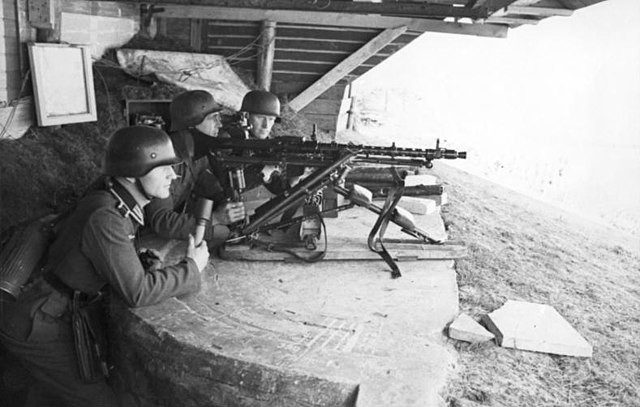After hearing of a secret raid dubbed Operation Jubilee, Foote requested the assignment to join. His commanding officer thought he would be more helpful in the invasion’s aftermath.
“I’ll make my own arrangements, and if you see me on the beach, you can order me off.”
So with tacit approval from the commander, he attached himself to a Regimental Aid Post on the waterfront of this small port. They commissioned him Honorary Captain. The early morning raid was the first time Canadians tested a bold, large-scale amphibious attack daring enough to raid Hitler’s continental fortress. It was also the first time most of the troops were in combat.

The battle on the beach lasted only six hours. That is until German defences and mounting Allied losses forced its commanders to call a retreat. Foote hauled injured men to landing crafts amidst a hail of bullets.
“Every man, carry a man!”
His courage set an inspirational symbol to the men, and so everyone helped load the wounded. By Foot’s example, they lifted one wounded man on their backs, walked into the water and waded to the nearest craft. They waded back to shore then raised another injured aboard. They saved 30 men that day.
As the last boat departed, Foote and medical officer Captain D. Clare splashed back to the bloodied beach.
“The men ashore would need me far more in captivity than any of those going home.”

They both voluntarily chose imprisonment with the captured injured men, where they stayed until the end of the war in May 1945. For three years, Foote conducted regular church services amid the squalid camp conditions. Despite threats to his life, he harassed the Germans for better treatment for the troops.
On February 14, 1946, thirty-eight-year-old John Foote was awarded the Victoria Cross. In time he achieved the rank of Major. He remained with the Canadian Corps of Chaplains at Camp Borden until being demobilized in 1948.

Canada gazetted his Victoria Cross award after the Second World War on February 14, 1946, the citation read:
DEPARTMENT OF NATIONAL DEFENCE, OTTAWA.
14th February 1946.
THE CANADIAN ARMY.
The KING has been graciously pleased to approve the award of the VICTORIA CROSS to:
Honorary Captain John Weir FOOTE, Canadian Chaplain Services.
At Dieppe, on 19th August 1942, Honorary Captain Foote, Canadian Chaplain Services, was Regimental Chaplain with the Royal Hamilton Light Infantry.
Upon landing on the beach under heavy fire he attached himself to the Regimental Aid Post which had been set up in a slight depression on the beach, but which was only sufficient to give cover to men lying down. During the subsequent period of approximately eight hours, while the action continued, this officer not only assisted the Regimental Medical Officer in ministering to the wounded in the Regimental Aid Post, but time and again left this shelter to inject morphine, give first-aid and carry wounded personnel from the open beach to the Regimental Aid Post. On these occasions, with utter disregard for his personal safety, Honorary Captain Foote exposed himself to an inferno of fire and saved many lives by his gallant efforts. During the action, as the tide went out, the Regimental Aid Post was moved to the shelter of a stranded landing craft. Honorary Captain Foote continued tirelessly and courageously to carry wounded men from the exposed beach to the cover of the landing craft. He also removed wounded from inside the landing craft when ammunition had been set on fire by enemy shells. When a landing craft appeared he carried wounded from the Regimental Aid Post to the landing craft through very heavy fire.
On several occasions this officer had the opportunity to embark but returned to the beach as his chief concern was the care and evacuation of the wounded. He refused a final opportunity to leave the shore, choosing to suffer the fate of the men he had ministered to for over three years.
Honorary Captain Foote personally saved many lives by his efforts and his example inspired all around him. Those who observed him state that the calmness of this heroic officer, as he walked about, collecting the wounded on the fire-swept beach will never be forgotten.


Reblogged this on battleoftheatlantic19391945 and commented:
.
LikeLike
[…] “Every man, carry a man!” — Bite Size Canada […]
LikeLike
What a courageous young man to have conducted himself in such a manner. It’s always nice to hear stories from the different countries involved in the war.
LikeLiked by 1 person
When I first heard of him, I was so impressed. I am sure I do not have that kind of courage in me. I just had to share his story! Thanks for the drop-in, Bev!
LikeLike